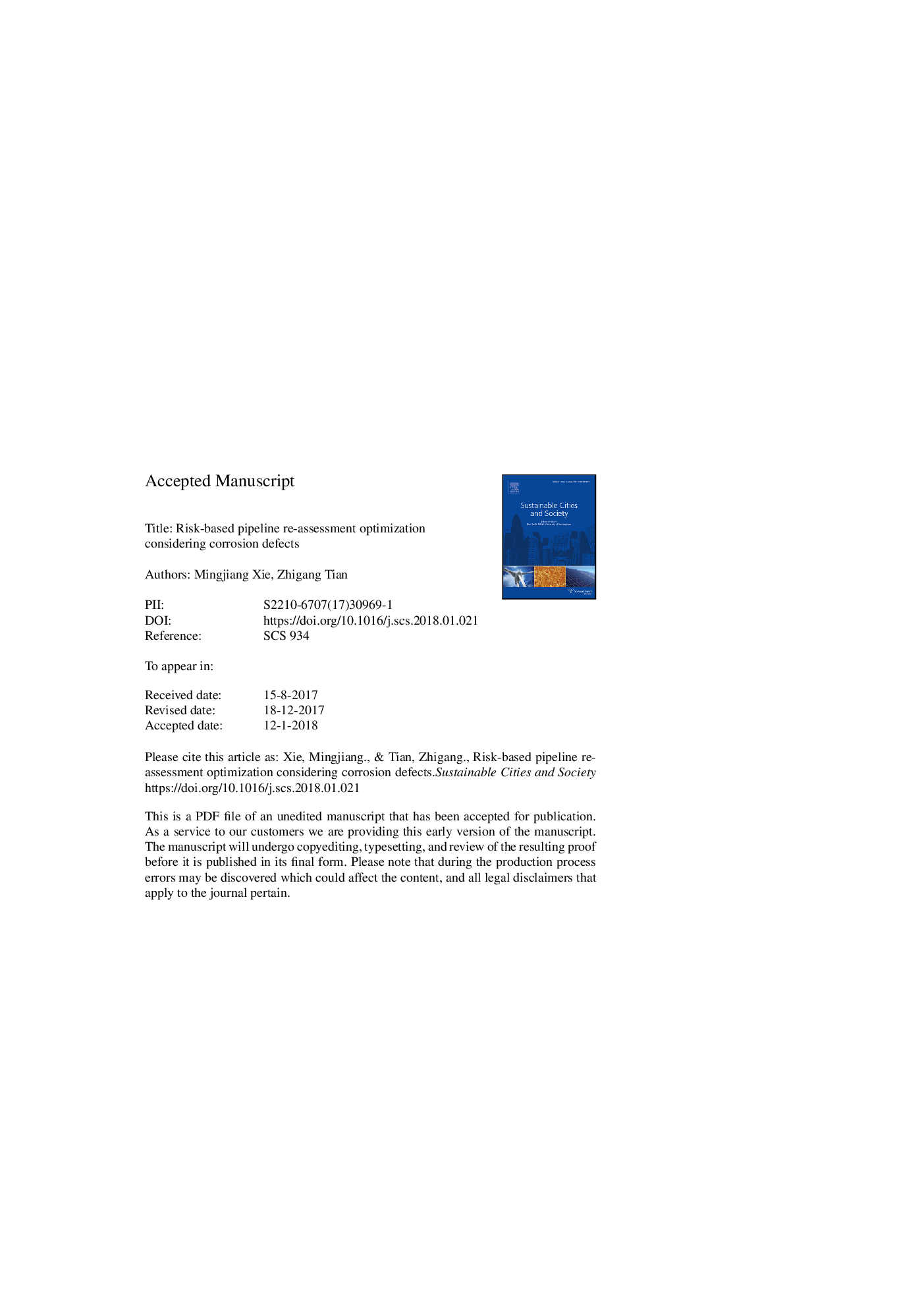| Article ID | Journal | Published Year | Pages | File Type |
|---|---|---|---|---|
| 6775645 | Sustainable Cities and Society | 2018 | 32 Pages |
Abstract
Pipelines are critical assets for transporting different crucial items such as oil, natural gas, and water, and they are critical for a city's reliable, safe and secure operations. Metal loss corrosion is one of the main failure modes that pipelines suffer from that can lead to pipeline rupture or collapse. Inspections or assessments are performed periodically to assess the health conditions of pipelines. Existing methods for determining the optimal inspection interval mainly used constant fixed re-assessment interval as the decision variable during the whole service. However, pipelines with different defect sizes at the current inspection point lead to different future defect growth and failure probability, and it is more reasonable to apply different re-assessment intervals depending on pipeline health conditions. This paper proposes a method to find the optimal re-assessment intervals for pipelines subject to multiple corrosion defects, where the probability of failure (PoF) threshold is used as the decision variable for this optimization problem. Uncertainties from various sources are considered in this study to achieve an accurate and realistic prediction. A simulation-based cost evaluation approach is developed for a given re-assessment policy defined by the PoF threshold. First-order reliability method is used to calculate the PoF to improve the efficiency. The optimal PoF threshold can be obtained corresponding to the minimum expected cost rate. An example is given to demonstrate the proposed approach, and sensitivity studies are performed.
Related Topics
Physical Sciences and Engineering
Energy
Renewable Energy, Sustainability and the Environment
Authors
Mingjiang Xie, Zhigang Tian,
